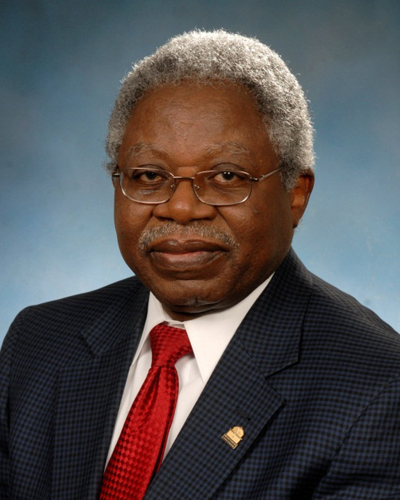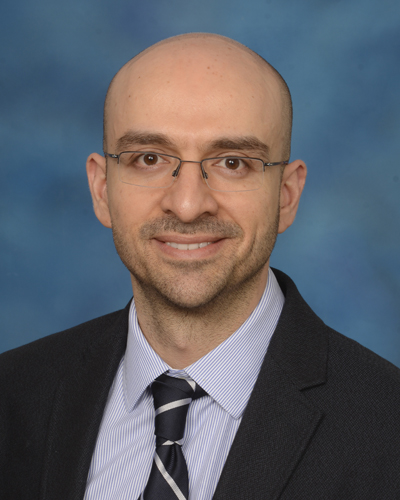Labs

Ferrer Lab
The Ferrer Lab at the University of Maryland Baltimore and the Greenebaum Comprehensive Cancer Center studies the ability of cancer cells to initiate, disseminate and metastasize. Our mission is to advance the understanding of metastatic pancreatic cancer and develop new therapeutic strategies to improve patient outcomes.
Lab Trainees
- Deborah Delgado, PhD Candidate

Martin Lab
The Martin lab focuses on identifying molecular mechanisms that enable metastatic breast tumor cells to travel through non-adherent environments, such as the bloodstream or lymphatics. Our previous work identified unique microtentacles on the surface of circulating breast tumor cells that promote reattachment in distant tissues. Combining bioengineering and tumor cell biology, we investigate mechanisms regulating microtentacles, apoptosis and mechanotransduction in epithelial tumor cells to help identify new therapies to reduce metastasis.
Lab Trainees
- David Annis, PhD Candidate
- Darin Gilchrist, MD/PhD Candidate
- Julia Ju, PhD Candidate

Mathur Lab
The primary focus of the lab is to understand how neural macro- and microcircuits control action learning and selection under normal and pathophysiological conditions. We combine neuroanatomical methods with genetic, optogenetic, in vivo calcium imaging, animal behavior, and slice electrophysiology to define both neural circuit form and function. We employ mouse models of alcohol use disorder to determine how specific neural circuits are affected by pathological states with a focus on restoring normal circuit function and, therefore, behavior.
Lab Trainees
- Eliza Douglass, PhD Candidate
- Max Madden, PhD Candidate
- Allison Siclair, PhD Candidate
- Brent Stewart, PhD Candidate

McCarthy Lab
The research laboratory of Margaret McCarthy, PhD aims to understand the origins and mechanisms of sex differences in the brain. Sexual differentiation of the brain is a developmental process whereby physiological and behavioral phenotypes are modified to match gonadal phenotype to ensure reproductive success.
Lab Trainees
- Andrew Allee, PhD Candidate
- Christie Dionisos, PhD Candidate
- Kaliroi Engel, PhD Candidate
- Anna Maximova, MD/PhD Candidate
- Neema Moin Afshar, MD/PhD student
- Aidan Pham, PhD Candidate

Mong Lab
A primary focus of my research is the study of mechanisms underlying the ovarian steroid control of sleep and arousal systems. Jessica A. Mong, PhD, laboratory uses a multidisciplinary approach, which combines behavioral, cellular and molecular and functional neuroanatomical techniques.
Lab Trainees
- Katie Kruk, MD/PhD Candidate
- Chimdiya Onwukwe, MD/PhD Candidate

Njar Lab
Dr. Vincent C. O. Njar has a long-standing interest in the rational discovery and development of small molecules as anti-cancer agents. The major objective of his current research is to design, synthesize, and evaluate novel patentable compounds in suitable model systems with potentials to prevent and/or treat breast and prostate cancers. Dr. Njar is also interested in understanding mechanisms of anti-cancer actions of the novel agents.

Poulopoulos Lab
The goal of our group is to understand the in vivo mechanisms that determine circuit formation in development and circuit remodeling in adulthood; to discover how these processes deviate to alter brain circuits in neurodevelopmental conditions and mental illness; and to develop the knowhow and methodologies that may allow therapeutic intervention for the regeneration of circuits lost to disease or trauma.
Lab Trainees
- Colin Robertson, PhD Candidate
- Ro Whitten, PhD Candidate

Qiu Lab
Yun Qiu, PhD, laboratory studies molecular mechanisms underlying therapeutic resistance in prostate cancer, with focuses on understanding the functions of protein kinases (SRC, ETK/BMX and PIM-1), nuclear receptor (androgen receptor and its splicing variants), and ubiquitin E3 ligase (RNF6).

Wolff Lab
The Wolff Lab studies how distributed neuronal networks underlie complex learning processes, using motor skill learning in rats as our model.
Lab Trainees
- Sophie Elvig, PhD Candidate
- Saovleak Noury Khim, PhD Candidate
- Oluwatomiwa Oladunni, MD/PhD Candidate

Yu Lab
Our lab researches the mechanism of cancer metastasis, the major cause of cancer-related death. Distant metastasis is mostly initiated by tumor cells shed from the primary tumor into the blood circulation, known as circulating tumor cells (CTCs), which are carried to distant organs where metastatic tumors eventually arise. By studying CTCs isolated from breast cancer patients and mouse models, using approaches of molecular and cellular biology, single cell tracing, and modeling in animals, we strive to gain a better understanding of the metastasis-initiating properties in CTCs and obtain novel insights on how to target those rare populations.
Lab Trainees
- Jessica Cornell, PhD Candidate
- Rebecca Marker, PhD Candidate
- Aidan Moriarty, PhD Candidate
- Anu Sunkara, PhD Candidate
